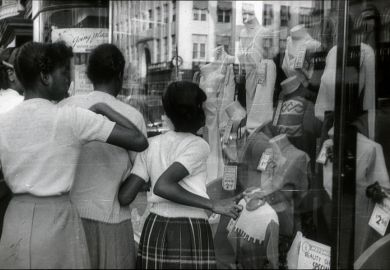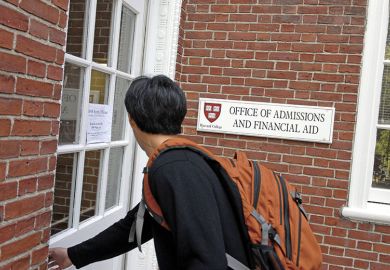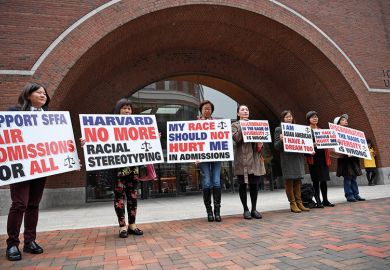Striving for egalitarianism in higher education is not only commendable, it is something that we should all encourage and promote. After all, it’s only proper that there is a fair representation of people from all walks of life and from all sectors of our community on our campuses. This is particularly admirable in regard to the student population.
It is pleasing to see that in recent years equality of opportunities has been targeted with initiatives that have reached out to inner-city pupils and provided them with opportunities which, only 20 years ago, were non-existent. The effect – albeit still relatively faint in some of our elite universities – has been discernible, with many more students from economically disadvantaged backgrounds entering higher education.
It’s clear that universities have recognised the need to address their own cultural imbalance or their lack of socio-equilibrium. The same, however, is not the case for recruitment of academic personnel, particularly the representation of teaching staff from minority communities.
Statistics collected last year show that universities still have a long way to go in addressing this. According to Advance HE, out of 19,000 professors, a mere 90 were black while only one in four were women, and out of these, 92 per cent were white.
Although I have no concrete figures to back this up, the very few black and Asian staff (often sessional) are still predominantly (though not exclusively) involved in the delivery of courses such as race studies, sociology, health and social care, world literature, women/gender studies or postcolonialism. These are often described as “soft” options or disparagingly as “ghettoised” subjects.
It may sound disingenuous – and perhaps it is – but it is still very rare to find members of minority groups teaching courses in Classics, archaeology, architecture, astronomy, English literature, history or philosophy. In some universities, even cultural studies and race studies – once exclusive domains of black and Asian academics – are chaired and occupied by white academics.
As the situation stands, I cannot see a concerted effort on the part of universities to reach out to a wide range of cultural and racial groups. I’m not suggesting that universities should adopt a US-style affirmative action approach. I am also against the idea that we should reduce standards for minority applicants for academic posts. Nor do I believe that government should intervene and set a quota for institutions. That would be absurd and deeply fallacious.
However, universities’ recruitment panels and their selection procedures are two components that need to be addressed. Do institutions monitor their selection criteria in a robust and transparent way? Do they interview fairly without bias or prejudice?
After all, there are more ethnic minority graduates today who have gone on to obtain postgraduate degrees, so shouldn’t this be reflected in academia?
These questions get to a larger point that asks whether HE institutions are doing enough to attract staff from a diverse sociocultural background. It could be, as some black and Asian people suspect, that universities are merely paying lip service to government directives that compel institutions to carry out the box-ticking exercises. Are they just going through the motions without a real commitment to adjusting the staff population?
As an Asian academic who has – up until now – staunchly refused to point at institutional racism for discrimination, and/or lack of opportunities, I am becoming very concerned at the number of people I have spoken to who state that recruitment is tinted with racial prejudice.
Colleagues say that often interviewing panels have little knowledge of what ethnic applicants bring to the table or how their experience enhances their perspective of a subject. This is because recruitment and interviewing criteria do not accommodate their background, history, race or experience. I have witnessed panels whose members have had fewer qualifications or a less distinguished record of publications than the applicants they’re assigned to interview.
The whole process is often skewed towards whiteness and a reluctance to address diversity in a serious way. And that should concern us all irrespective of our race or culture.
If universities really want to embrace diversity in regard to their academic staff, they have to look at their existing equal opportunities and monitoring data, recruitment strategies and the way that they interview applicants. When was the last time they reviewed their interviewing and recruitment formats? When did they ask applicants (after the interview) how they felt about the process? When did an external agency, in the form of a government body, assess the quality of a university’s interviewing structure or format? I suspect, for most universities, it was a very long time ago.
Roshan Doug is reader in education at the University of Birmingham.
POSTSCRIPT:
Print headline: Hiring strategies are failing ethnic minority scholars
Register to continue
Why register?
- Registration is free and only takes a moment
- Once registered, you can read 3 articles a month
- Sign up for our newsletter
Subscribe
Or subscribe for unlimited access to:
- Unlimited access to news, views, insights & reviews
- Digital editions
- Digital access to THE’s university and college rankings analysis
Already registered or a current subscriber?




